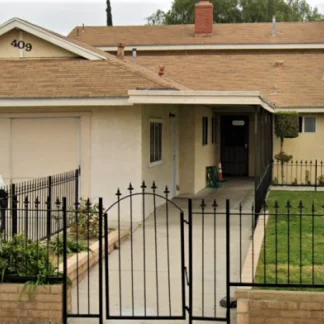Saint Josephs Hospital - Behavioral Health Services
Saint Josephs Hospital – Behavioral Health Services is a private rehab located i...
Cooper Fellowship is a private rehab located in Santa Ana, California. Cooper Fellowship specializes in the treatment of alcoholism, drug addiction, dual diagnosis, mental health and substance abuse, and opioid addiction.
Contact us for more information: (714) 554-1152

Connect with Cooper Fellowship by calling their admissions team directly.
(714) 554-1152 Website Get DirectionsThe Substance Abuse and Mental Health Services Administration (SAMHSA) is a branch of the U.S. Department of Health and Human Services. Established in 1992 by congress, SAMHSA's mission is to reduce the impact of substance abuse and mental illness on American's communities.
SAMHSA Listed: Yes
Cognitive Behavioral Therapy (CBT) is a therapy modality that focuses on the relationship between one's thoughts, feelings, and behaviors. It is used to establish and allow for healthy responses to thoughts and feelings (instead of unhealthy responses, like using drugs or alcohol). CBT has been proven effective for recovering addicts of all kinds, and is used to strengthen a patient's own self-awareness and ability to self-regulate. CBT allows individuals to monitor their own emotional state, become more adept at communicating with others, and manage stress without needing to engage in substance abuse.
Research clearly demonstrates that recovery is far more successful and sustainable when loved ones like family members participate in rehab and substance abuse treatment. Genetic factors may be at play when it comes to drug and alcohol addiction, as well as mental health issues. Family dynamics often play a critical role in addiction triggers, and if properly educated, family members can be a strong source of support when it comes to rehabilitation.
Research clearly demonstrates that recovery is far more successful and sustainable when loved ones like family members participate in rehab and substance abuse treatment. Genetic factors may be at play when it comes to drug and alcohol addiction, as well as mental health issues. Family dynamics often play a critical role in addiction triggers, and if properly educated, family members can be a strong source of support when it comes to rehabilitation.
Saint Josephs Hospital – Behavioral Health Services is a private rehab located i...
School Ten provides individuals high quality counseling, education and rehabilit...
Clean Path Behavioral Health is a private substance abuse center in Costa Mesa, ...
California Hispanic Commission - Casa Elena offers inpatient treatment for indiv...